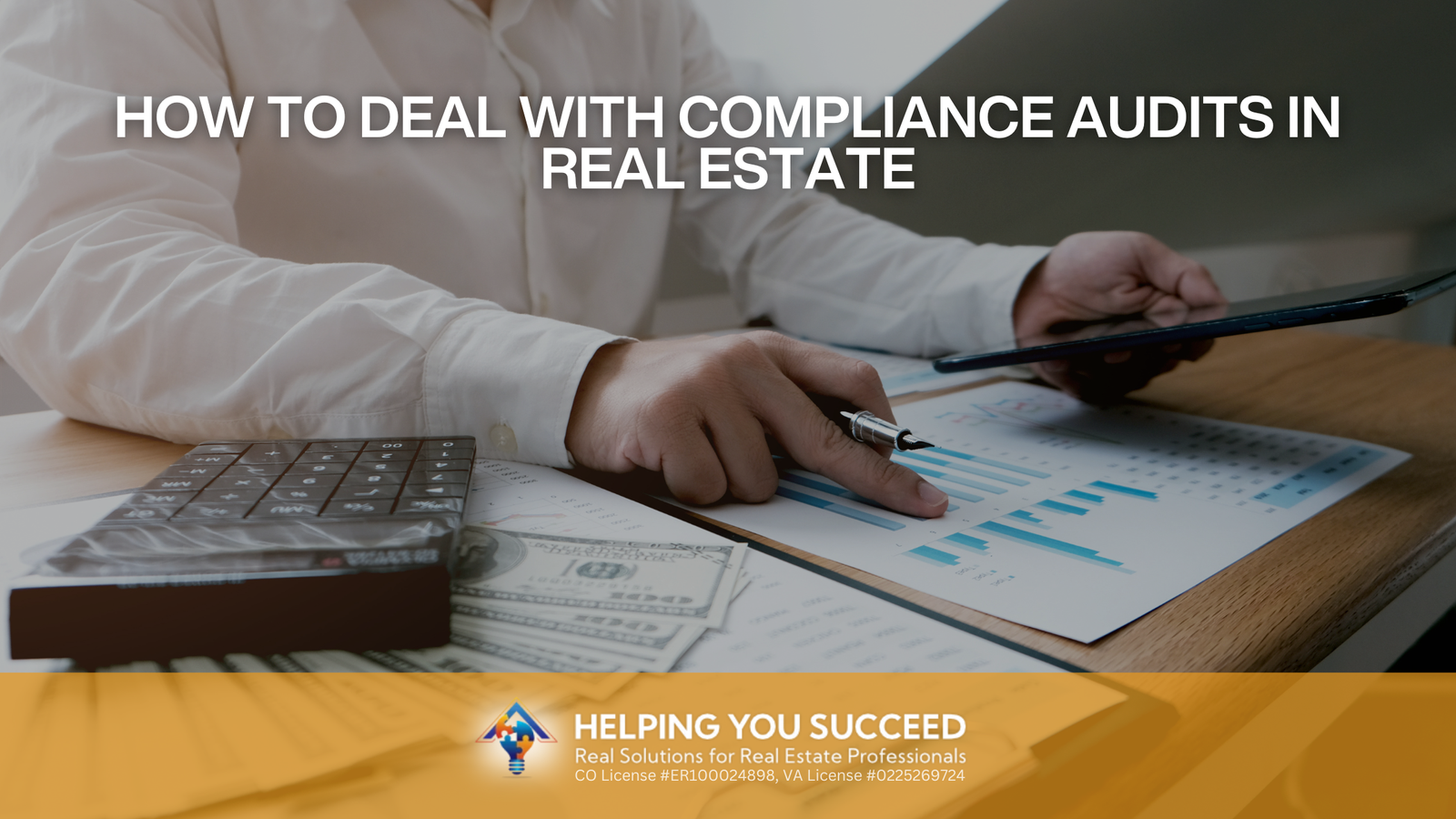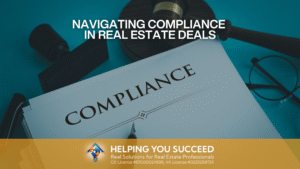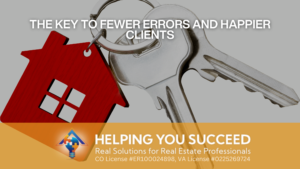Navigating the world of real estate can feel a bit like walking through a maze. At any turn, there’s a potential compliance audit waiting to happen. Compliance audits in real estate involve the examination of your operations, records, and procedures. The purpose? To ensure that everything is in line with current regulations. These audits can seem intimidating, but they play a significant role in maintaining the integrity of real estate practices. Why not meet them head-on?
Imagine this: You’re running your real estate business, things are going smoothly, and then suddenly there’s an audit. If you’re not prepared, it can be a source of stress and chaos. But with the right preparation, a compliance audit can be just another task on your list, rather than a surprise. Being ready means understanding what these audits typically look for and knowing how to have everything lined up in advance. Let’s explore how you can turn an audit into a manageable task.
Understanding Compliance Audits
To start, let’s discuss what compliance audits in real estate actually involve. Essentially, these audits are checks performed to make sure your real estate practices align with the laws and regulations in place. Audits often look into areas like licensing, transaction records, and adherence to fair housing laws. They ensure that you’re operating within legal boundaries, which ultimately protects both your business and your clients.
What are some of the common elements inspected during these audits? They typically focus on:
– Verification of current licenses and permits
– Accurate and complete transaction records
– Adherence to fair housing regulations
– Transparent financial reporting
These components help auditors confirm that your business not only meets legal requirements but also maintains high standards of ethical practice.
Why are these audits necessary? Simply put, they keep everyone in check. Real estate moves fast, and without regular audits, it’s easy for businesses to fall out of compliance without even realizing it. Compliance audits also serve as a signal to clients that you are trustworthy and committed to following the rules. It’s a win-win scenario: you maintain your good standing, and clients feel safer knowing they’re dealing with a reputable business.
Preparing for Compliance Audits
Getting ready for a compliance audit requires some organization and foresight. Here’s a handy list of steps to ensure you’re prepared:
1. Gather Documentation: Start by collecting all necessary documents like licenses, permits, and transaction records. Keeping these in one place makes them easier to access during an audit.
2. Organize Files and Records: Label files clearly and categorize them according to type or transaction date. This not only helps during audits but also speeds up daily operations.
3. Conduct Internal Reviews: Regularly check your documents and procedures to ensure they meet compliance standards. This helps catch any potential issues before an official audit.
Regular internal reviews are particularly important. They provide a chance to identify gaps and areas for improvement. By routinely checking your compliance, you not only prepare for audits but also discover opportunities to streamline your operations. If you treat your internal reviews as mini-audits, you’ll stay on top of compliance effortlessly.
Investing time in these preparatory steps transforms the idea of an audit from something daunting to a simple checkbox you can tick off with confidence.
Common Challenges and How to Overcome Them
Compliance audits can sometimes present unexpected challenges. Identifying areas where a business might fall out of compliance early on can save a lot of trouble down the road. It’s crucial to monitor regularly and be aware of potential pitfalls. One common issue is incomplete documentation, which can easily be missed as transactions speed by. Keeping a checklist of necessary documents can help ensure everything is in place before the audit.
Unexpected findings are another challenge. Perhaps a regulation changed, and your procedures haven’t adapted yet. It’s important to have a strategy ready for when surprises arise. Quick action plans can include setting up a team meeting to address the issue or consulting with an expert to guide your next steps. By staying calm and focused, you can turn these surprises into learning experiences.
Staying updated with changing regulations is a constant task. Regulations can shift due to new laws or changes in the real estate environment. Websites of regulatory bodies and industry newsletters are rich resources for staying informed. Additionally, setting up alerts for any changes in real estate regulations can keep you on your toes and boost your confidence during audits.
Benefits of Using Compliance Services
Hiring compliance services can be a huge relief, especially when the time comes for audits. These services take on the stress of compliance checks, making sure your business remains aligned with all necessary regulations. They review your procedures, organize your documentation, and keep track of any regulatory changes that might affect you.
Compliance services can handle tasks like checking transaction records and verifying your practices against the latest compliance requirements. They also offer recommendations and implement improvements that streamline your processes. This support goes a long way in alleviating the pressure from you and your team.
Long-term benefits include sustained compliance, which fosters trust with clients and partners. When your compliance is professionally managed, you don’t just avoid penalties; you also enhance your reputation. Clients feel more assured, knowing they are working with a business that prioritizes transparency and reliability. This confidence can lead to more repeat business and recommendations.
Finishing Strong with Compliance Audits
Being ready for compliance audits doesn’t just help in ticking off requirements—it builds a robust framework for your business operations. When you’re proactive about compliance, it reflects your commitment to quality and integrity in real estate. This mindset shields your company from any legal repercussions and positions you as a conscientious leader in your field.
Prioritizing compliance translates to smoother transactions and happier clients. Each prepared audit fortifies your processes, ensuring your business thrives in any regulatory environment. By keeping this commitment, you’re building a reputation that attracts more customers and turns potential challenges into opportunities for growth. In the fast-paced world of real estate, staying compliant means investing in the long-term success of your business.
Embracing compliance as a strategic focus in your real estate business enhances your operations and assures clients of your dedication to transparency. To make this process even more seamless, consider teaming up with professionals who specialize in compliance services. Helping You Succeed offers guidance to simplify your compliance needs, ensuring you face each audit with confidence. Explore how a structured approach can protect your reputation and propel your business forward.




